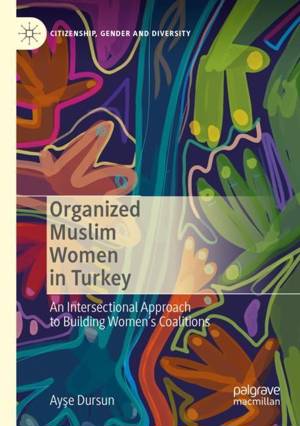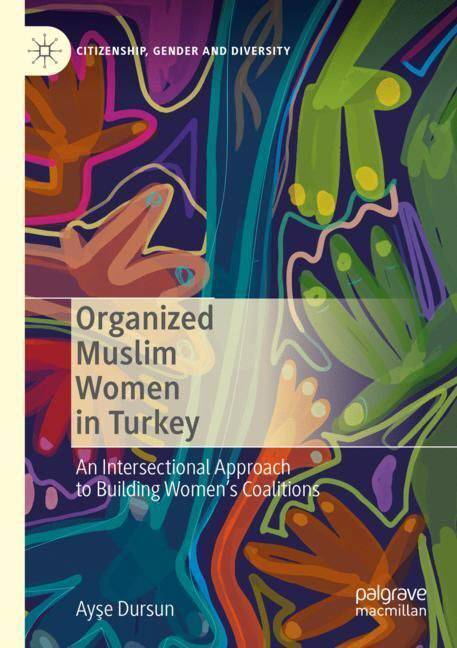
- Afhalen na 1 uur in een winkel met voorraad
- Gratis thuislevering in België vanaf € 30
- Ruim aanbod met 7 miljoen producten
- Afhalen na 1 uur in een winkel met voorraad
- Gratis thuislevering in België vanaf € 30
- Ruim aanbod met 7 miljoen producten
Organized Muslim Women in Turkey
An Intersectional Approach to Building Women's Coalitions
Ayşe DursunOmschrijving
This book explores the politics of organized Muslim women in Turkey and analyzes their coalitions with other--secular feminist, Kurdish, etc.--women's movements from an intersectional perspective. It provides empirical evidence for significant changes in Muslim women's politics under the ruling Justice and Development Party (AKP) and points to the increasing difficulty to build cross-movement women's coalitions in the face of rising religious conservatism and authoritarianism under the AKP rule. While feminist Muslim women who display an intersectional understanding of structural inequality and oppression are found to be more resilient in the face of political pressure, conservative Muslim women dodge women's coalitions and align with the government's discourses and policies. Empirical evidence based on interviews with organized Muslim women also shows that prospects for coalition building largely depends on the specific societal and institutional (re-)configurations of patriarchy along with other relations of domination rather than mere ideological "difference" among women.
This book will be of interest to scholars and students across Gender Studies, Sociology, and Political Science, particularly those whose research focuses on intersectionality and social movements.
Specificaties
Betrokkenen
- Auteur(s):
- Uitgeverij:
Inhoud
- Aantal bladzijden:
- 236
- Taal:
- Engels
- Reeks:
Eigenschappen
- Productcode (EAN):
- 9783031093104
- Verschijningsdatum:
- 26/10/2023
- Uitvoering:
- Paperback
- Formaat:
- Trade paperback (VS)
- Afmetingen:
- 148 mm x 210 mm
- Gewicht:
- 303 g

Alleen bij Standaard Boekhandel
Beoordelingen
We publiceren alleen reviews die voldoen aan de voorwaarden voor reviews. Bekijk onze voorwaarden voor reviews.













